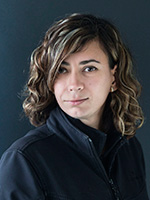Congratulations to Dr Mehri Alamdari – Infrastructure Innovator

Dr. Mehrisadat (Mehri) Makki Alamdari has been awarded the prestigious award from JSPS (Japan Society for Promotion of Science) to do research in Japan.
During her stay in Japan, she will be working at the Infrastructure Innovation Engineering Centre, Department of Civil and Earth Resources Engineering at Kyoto University. She will be closely collaborating with Professor C. W. Kim, a world-recognised expert in the field of Bridge Health Monitoring at Kyoto University, to develop an advanced drive-by bridge inspection technology using mobile sensing.
This research aims at developing a robust framework for monitoring of bridges in service to evaluate their long-term performance. The main goal is to develop a generic classification system comprised of a feature extractor and a classifier in order to detect, localise and assess any structural change in the bridge solely from the response of the vehicle moving over the bridge.
Dr. Makki Alamdari is a Lecturer in the UNSW, School of Civil and Environmental Engineering. She is an expert in structural health monitoring, vibration analysis and testing, inverse dynamic problems and signal processing.
An award-winning scholar, Mehri is on the Executive of the Australian Network of Structural Health Monitoring (ANSHM), 2017 and a member of The International Society for Structural Health Monitoring of Intelligent Infrastructure (ISHMII). Prior to joining UNSW, she was a research fellow in Data61|CSIRO working on structural health monitoring of the iconic Sydney Harbour Bridge.
The Japan Society for the Promotion of Science is an Independent Administrative Institution, which plays a pivotal role in the administration of a wide spectrum of Japan's scientific and academic programs.. Supported in large part by annual subsidies from the Japanese Government, JSPS’s main functions are: To foster young researchers: To promote international scientific cooperation: To award Grants-in-Aid for Scientific Research: To support scientific cooperation between the academic community and industry, and to collect and distribute information on scientific research activities.



